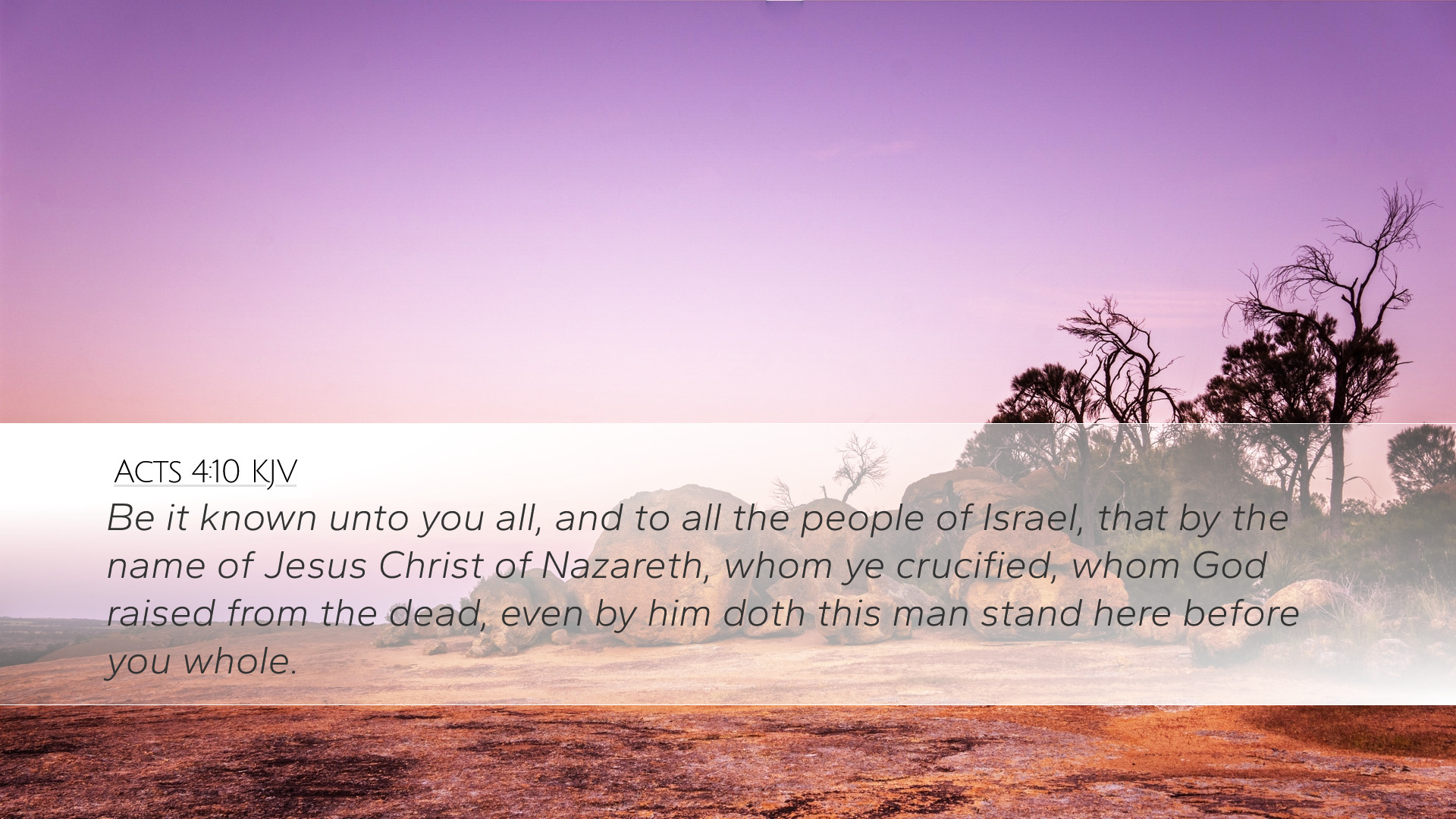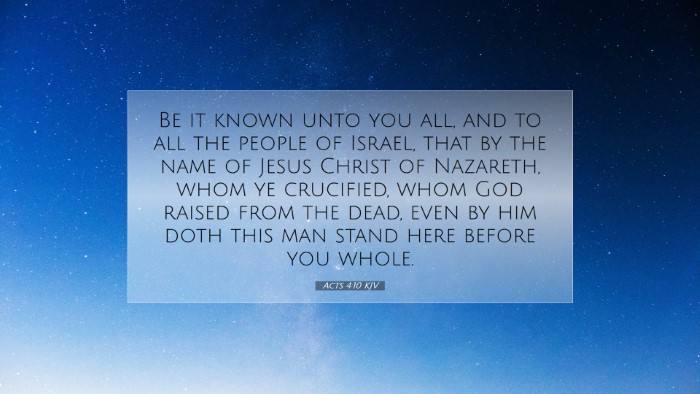Commentary on Acts 4:10
Verse Reference: Acts 4:10 - "Be it known unto you all, and to all the people of Israel, that by the name of Jesus Christ of Nazareth, whom ye crucified, whom God raised from the dead, even by him doth this man stand here before you whole."
Introduction
This verse is a powerful declaration made by Peter in the face of the Sanhedrin, emphasizing the centrality of Christ’s name in the miracle performed before the onlookers. The various commentaries highlight key theological themes such as the authority of Jesus, the resurrection, and the fulfillment of prophetic scripture.
Historical Context
The setting of Acts 4 reveals the early church grappling with opposition after the miraculous healing of a lame man. Peter and John are confronted by religious authorities who are troubled by their teachings about Jesus. Understanding this context provides insight into the boldness of Peter’s proclamation.
Considerations from Matthew Henry
Matthew Henry interprets this verse as a testimony to the power and authority vested in the name of Jesus. He regards Peter’s defense not only as a statement of faith but as an unequivocal attribution of Christ's power in the healing, emphasizing that:
- The name of Jesus signifies His divine authority.
- The act of crucifixion is highlighted as a grievous action by the people, underscoring the seriousness of rejecting the Messiah.
- The resurrection shows that Jesus has overcome death, validating His divine mission.
Insights from Albert Barnes
Albert Barnes expounds on the phrase “By the name of Jesus Christ of Nazareth” as representing the whole character and office of Christ. He notes that in ancient Jewish culture, names were significant and often reflected one's identity and mission. Therefore, Peter's declaration is profound in establishing the supremacy of Christ's name over all forms of healing and authority. Barnes also points out that:
- The mention of Nazareth connects Jesus to His humble beginnings, which serves as a contrast to His exaltation after resurrection.
- This passage serves as an encouragement for believers to invoke Christ’s name in prayer, acknowledging its power for both physical and spiritual healing.
Reflections from Adam Clarke
Adam Clarke provides clarification on the resurrection's centrality in Peter's argument. He emphasizes the importance of acknowledging Jesus as the one who was “crucified” but also “raised from the dead.” His commentary suggests that:
- The juxtaposition of crucifixion and resurrection presents a clear gospel message, highlighting God’s redemptive work through suffering and victory.
- Clarke also addresses the implications of faith in Christ, noting that true healing is a result of faith in Him, which he encourages the readers to pursue.
Theological Implications
From a theological perspective, Acts 4:10 underscores several doctrines that are critical to the Christian faith:
- The authority of Christ: The name of Jesus must be understood as the ultimate authority in matters of salvation and healing.
- Resurrection theology: The belief that Jesus rose from the dead is foundational to Christian faith, affirming victory over sin and death.
- The call to evangelism: Peter’s boldness serves as a model for believers today in proclaiming the gospel regardless of opposition.
Application for Believers
For modern-day pastors, students, theologians, and scholars, Acts 4:10 serves as a critical reminder of the necessity to:
- Emphasize the name of Jesus: In preaching and teaching, it is vital to anchor our discussions in the authority and power of Jesus' name.
- Reflect on the impact of resurrection: Explore how the reality of Christ’s resurrection transforms our understanding of life, hope, and healing.
- Be bold in faith: Like Peter, believers are called to share their faith courageously, trusting in God’s power to act through them.


